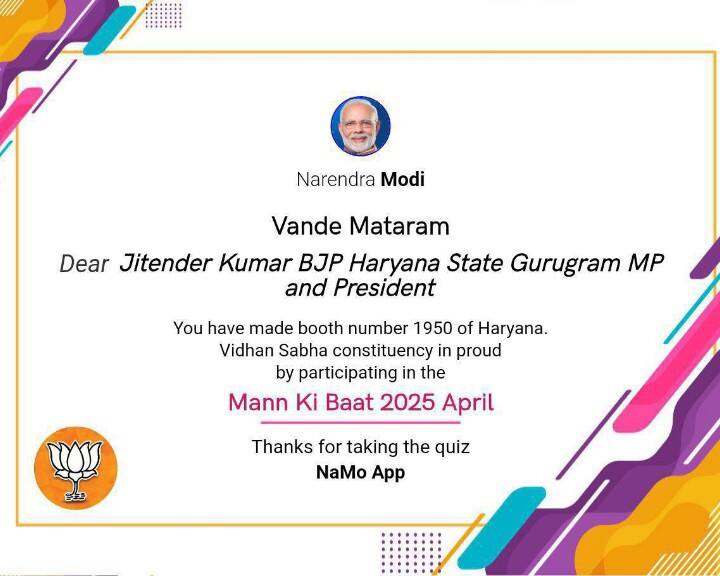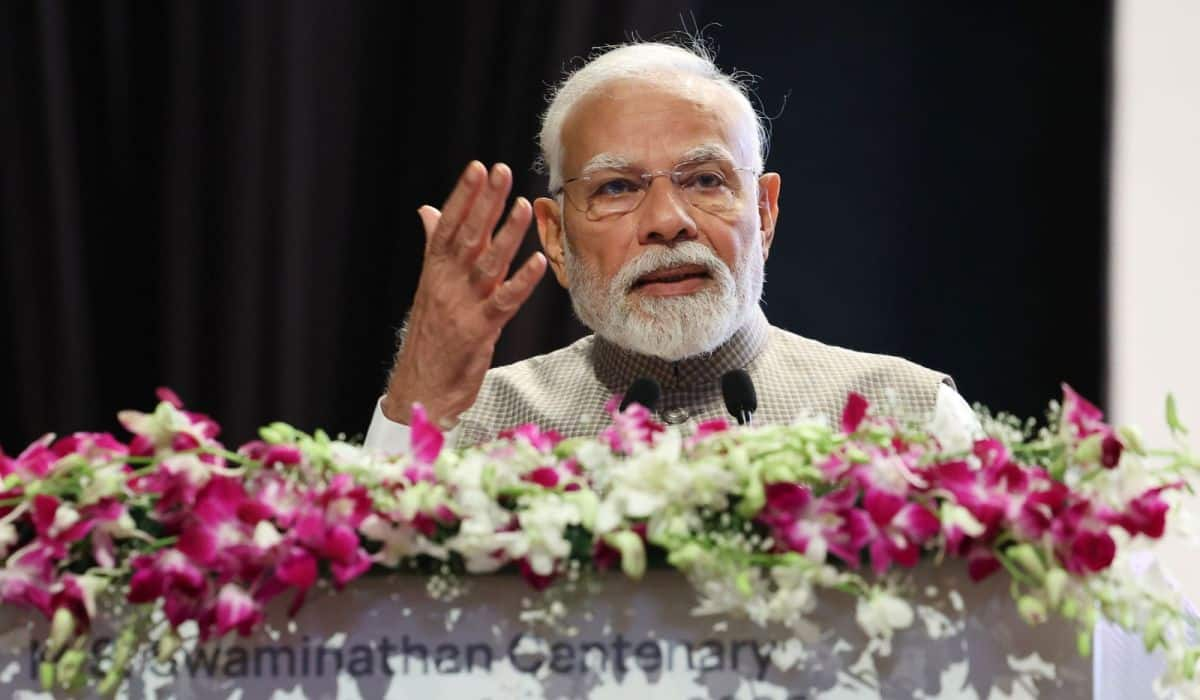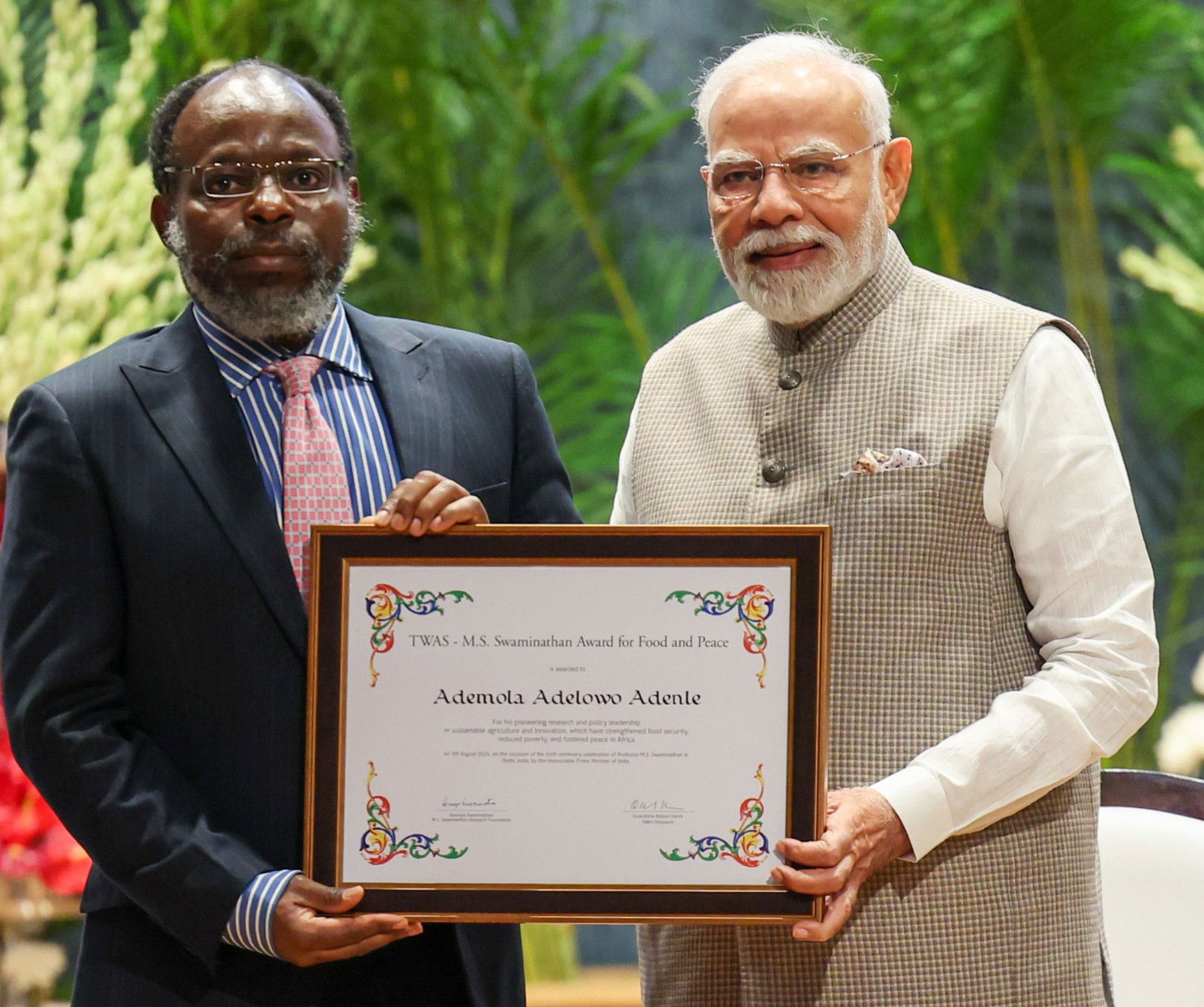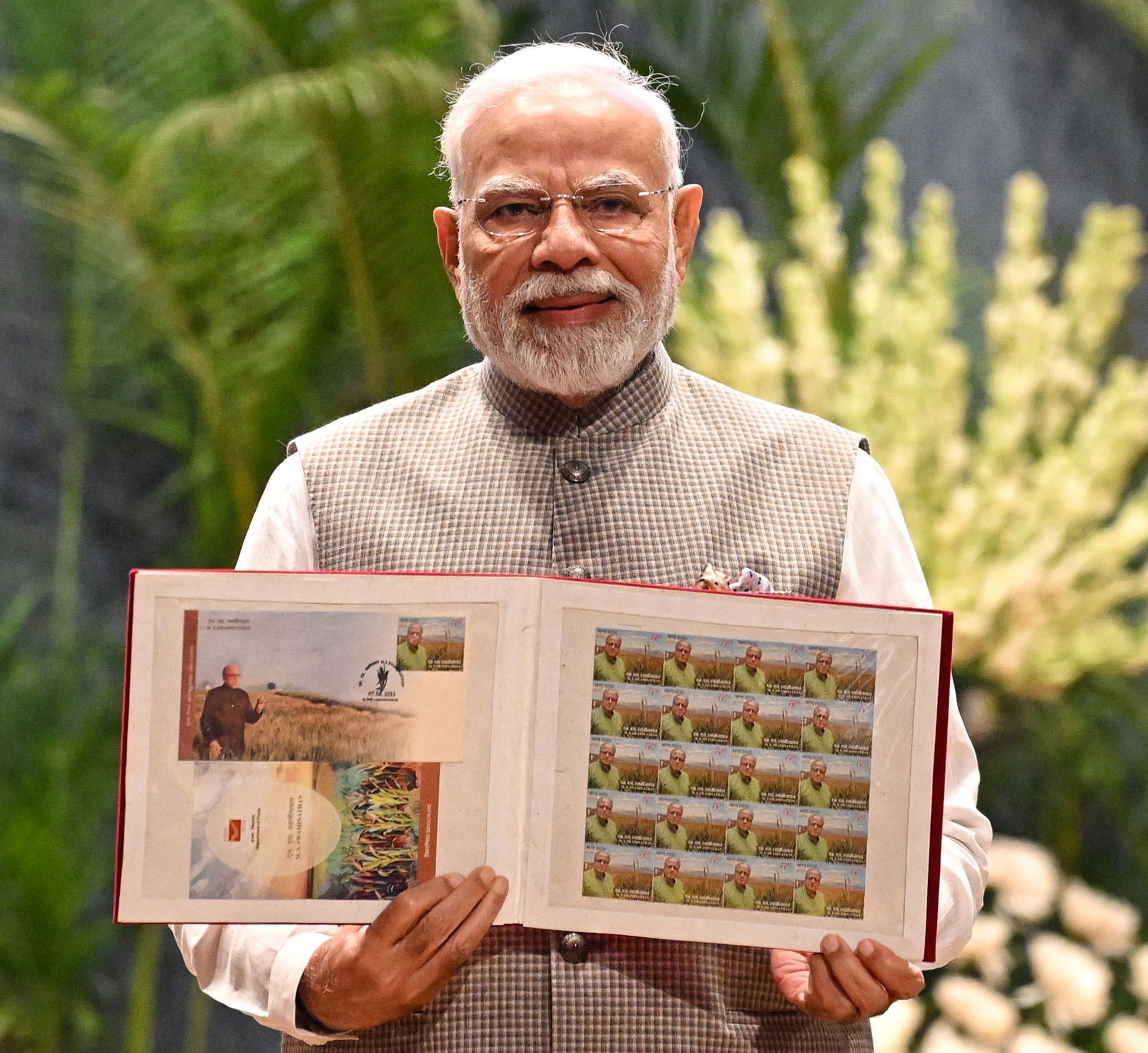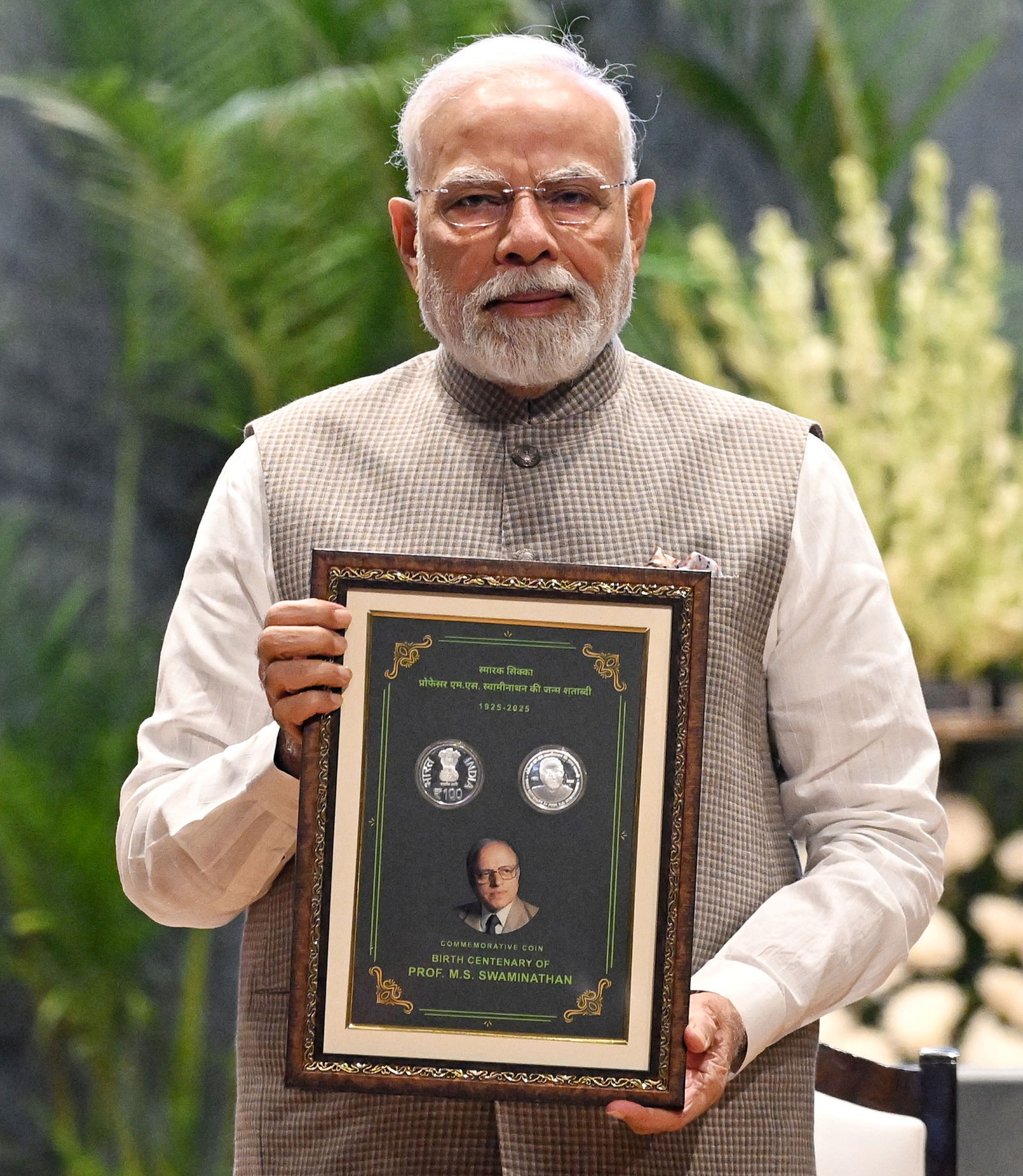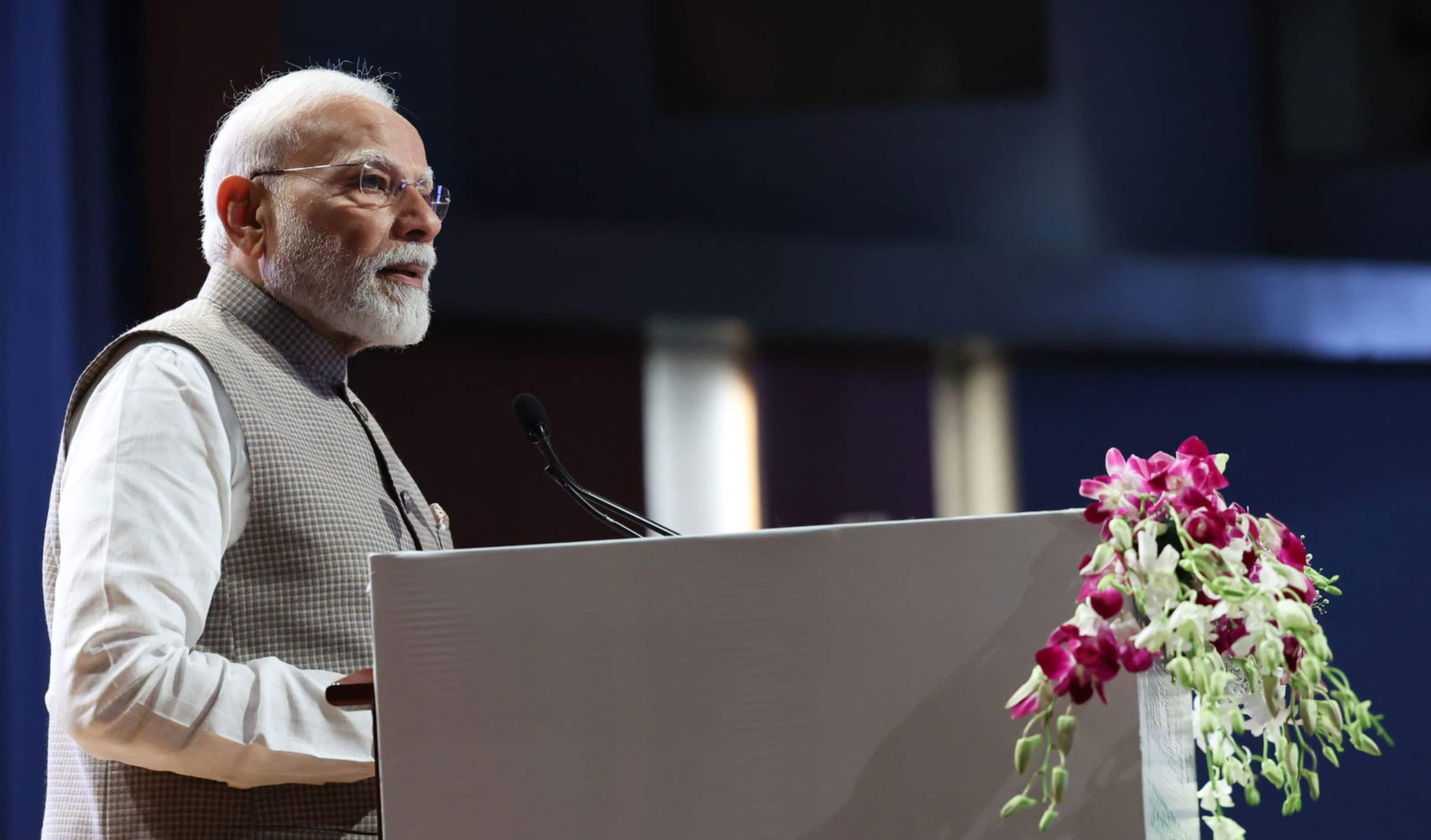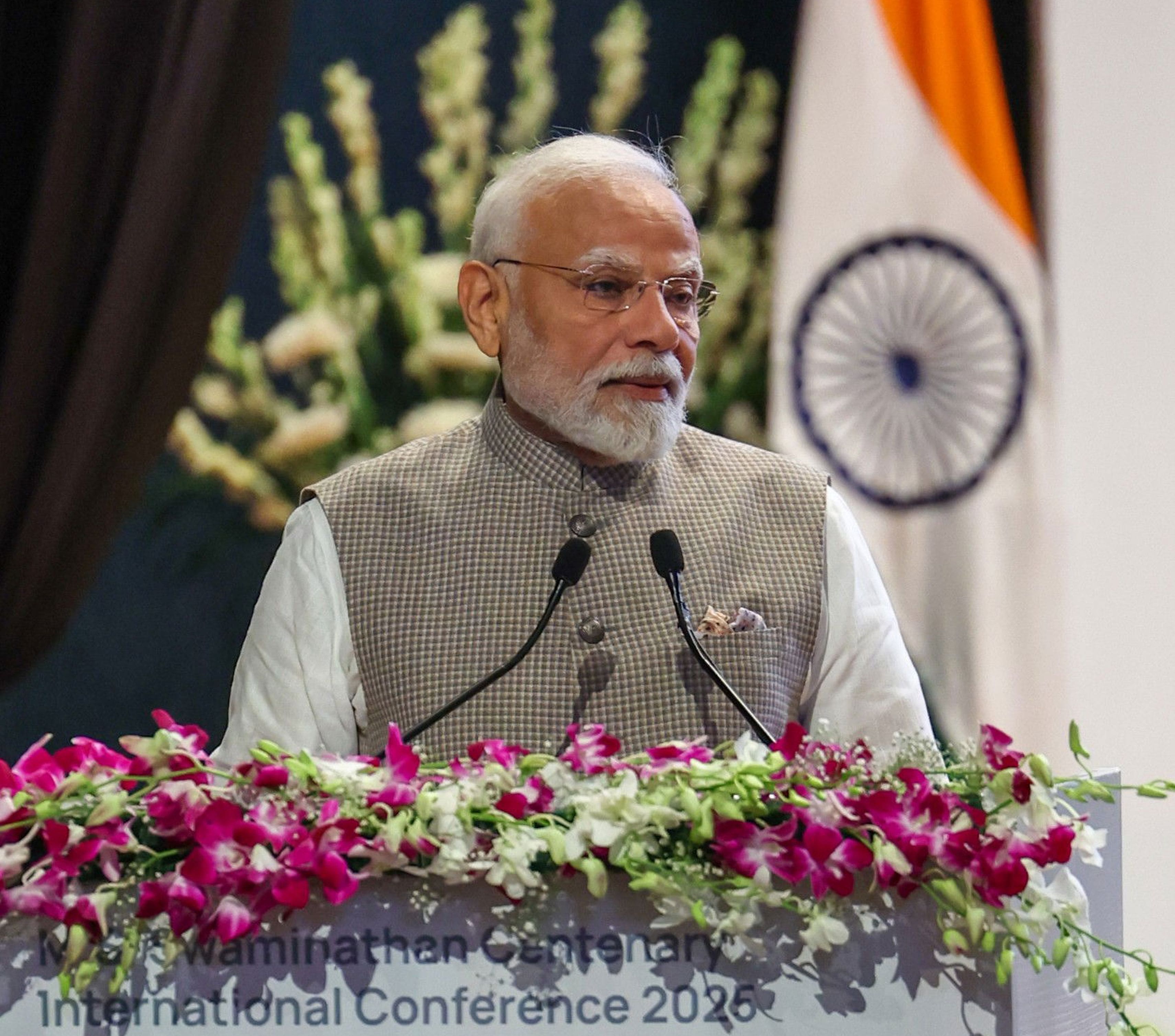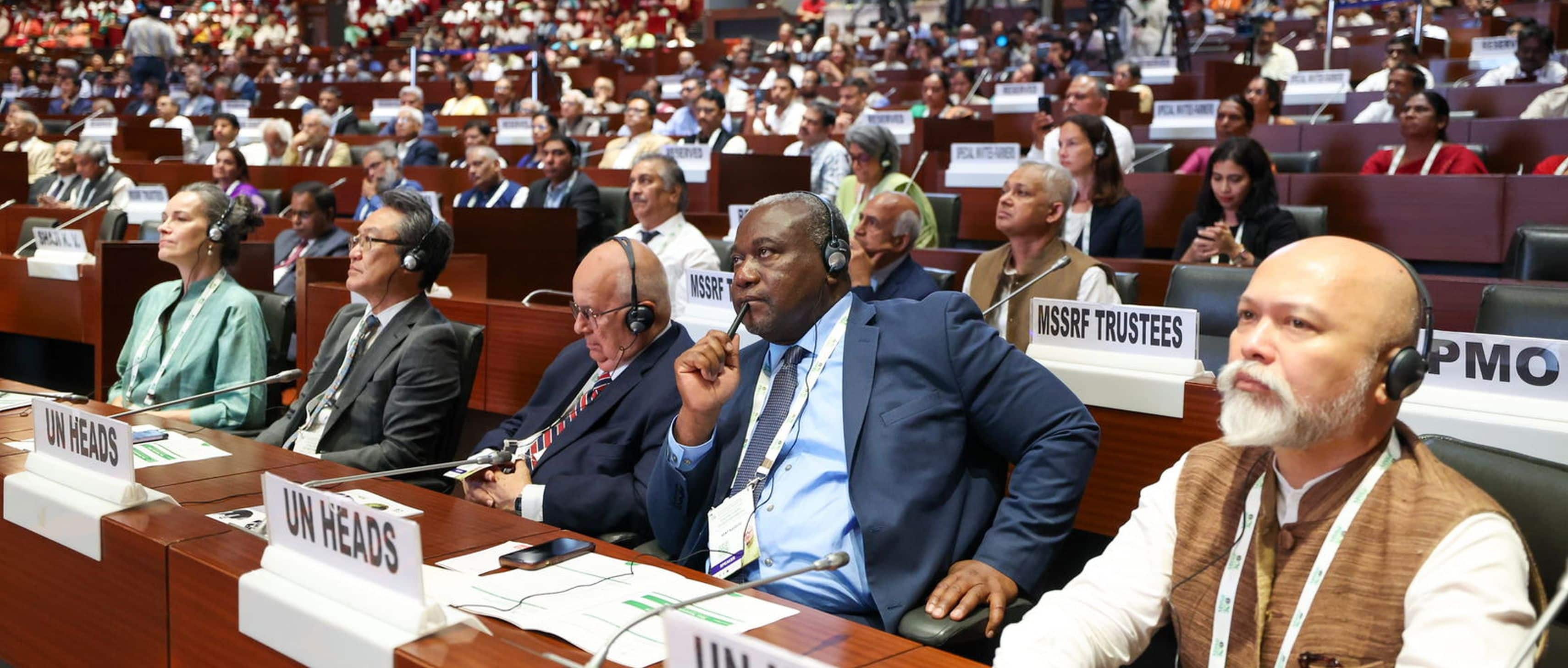The Prime Minister, Shri Narendra Modi dedicated to the nation the successful implementation of three transformative new criminal laws—Bharatiya Nyaya Sanhita, Bharatiya Nagarik Suraksha Sanhita and Bharatiya Sakshya Adhiniyam today at Chandigarh. Addressing the gathering, Shri Modi remarked that the identity of Chandigarh was associated with the Goddess Maa Chandi, a form of power which establishes truth and justice. He added that the same philosophy was the basis of the whole format of Bharatiya Nyaya Sanhita and Bharatiya Nagarik Suraksha Sanhita. The Prime Minister said that the coming into effect of Bharatiya Nyaya Sanhita, inspired by the spirit of the Indian Constitution, was an illustrious moment as the nation was at the important juncture of moving ahead with the resolution of Viksit Bharat as well as commemorating the completion of 75 years of Indian Constitution. He added that it was a concrete effort towards fulfilling the ideals that our Constitution envisioned for the citizens of the country. Shri Modi said that he had just got a glimpse of how the laws will be enforced by a live demonstration of the same. The Prime Minister urged the people to visit the live demo of the laws. He extended his warm greetings to all the citizens on the occasion of successful implementation of three new criminal laws. He also congratulated all the stakeholders of the administration of Chandigarh.
The Prime Minister underscored that the process of making the country's new Nyay Sanhita has been as comprehensive as the document itself. He added that it involved the hard work of the nation's many great constitution and legal experts. Shri Modi noted that the Ministry of Home Affairs had asked for suggestions in January 2020. He added that there were suggestions of many Chief Justices of the Supreme Court along with support from the Chief Justices of many High Courts of the country. He said that many stakeholders including the Supreme Court, 16 High Courts, Judicial Academies, Law Institutions, Civil Society Organizations and many intellectuals were involved in debates and discussions and used their vast experience over years to give their suggestions and ideas for the new Sanhitas. He further added that there were deliberations on the needs of the nation in today’s modern world. Shri Modi also noted that there was intensive brainstorming over the challenges faced by the Judicial System in the seven decades of Independence along with looking into the practical aspect of each and every law. He added that even the futuristic aspect of the Nyay Sanhita was worked upon. All these intensive efforts, he said, had given us the current form of the Nyay Sanhita. Shri Modi expressed his gratitude to the Honorable Supreme Court, High Courts - Punjab and Haryana High Court, in particular and all the honorable Judges for their concerted efforts towards the new Nyay Sanhita. He also thanked the Bar for coming forward and taking its ownership. Shri Modi expressed confidence that this Nyay Sanhita of India, made with everyone's cooperation, would prove to be a milestone in India's judicial journey.
Noting that the Criminal laws were made by the Britishers in the pre-Independence era as means of oppression and exploitation, Shri Modi said that Indian Penal Code (IPC) was introduced in 1860 consequent to the country's first major freedom struggle in 1857. He added that a few years later, the Indian Evidence Act was introduced and then the first structure of CRPC came into existence. Shri Modi remarked that the idea and purpose of these laws was to punish Indians and enslave them. He expressed that it was unfortunate that even decades after independence, our laws revolved around the same penal code and penal mindset. He further added that despite changes in the laws from time to time, their character remained the same. Shri Modi underscored that this mindset of slavery had impacted India's progress to a great extent.
Emphasizing that the country should now come out of that colonial mindset, the Prime Minister urged that the strength of the nation should be used in nation building, which necessitated national thinking. He recalled that during the Independence day speech this year, he had pledged to the country to get rid of the mentality of slavery. Shri Modi underlined that with the implementation of the new Nyay Sanhitas, the country had taken another step forward in that direction. He added that the Nyaya Sanhita was strengthening the spirit of 'of the people, by the people, for the people', which is the basis of democracy.
Remarking that the Nyay Sanhita was woven with the ideas of equality, harmony and social justice, Shri Modi said despite everyone being equal in the eyes of the law, the practical reality was different. He added that the poor were afraid of the laws, stepping into the court or a police station even. The Prime Minister remarked that the new Nyaya Sanhita would work to change the psychology of the society. He added that every poor person will have faith that the law of the country is a guarantee of equality. This, he said, embodied the true social justice assured in our Constitution.
The Prime Minister underlined that Bharatiya Nyaya Sanhita and Bharatiya Nagarik Suraksha Sanhita had sensitivity towards every victim. He stressed that it was imperative for the citizens of the country to know its details. Urging the gathering to see the live demo there, Shri Modi stressed that the live demo shown at Chandigarh today should be promoted and broadcast by the police of every state. The laws involved provisions such as within 90 days of the complaint, the victim will have to be given information regarding the progress of the case and this information will reach him directly through digital services like SMS. He added that a system had been created to take action against the person who obstructs the work of the police and a separate chapter was introduced to ensure the safety of women including their rights and safety at workplace, home and society. Shri Modi remarked that the Nyay Sanhitas ensured that the law stands with the victim. He added that in heinous crimes against women like rape, charges would be framed within 60 days from the first hearing and it was also made mandatory to pronounce the verdict within 45 days of the completion of the hearing along with no adjournments for more than twice in any case.
“Citizen First is the basic mantra of Nyay Sanhita”, exclaimed Shri Modi and added that these laws were becoming the protectors of civil rights and the basis of 'ease of justice'. Noting that it was very difficult to get an FIR registered earlier, Shri Modi remarked that now Zero FIR was legalized and now a case could be registered from anywhere. The Prime Minister also noted that the victim had been given the right to be given a copy of the FIR and now any case against the accused would be withdrawn only when the victim agrees. He added that now the police would not be able to detain any person on their own and informing his/her family members had been made mandatory in the Nyay Sanhita. Highlighting Humanity and Sensitivity as the other important aspects of new Nyaya Sanhita, Shri Modi said that now the accused could not be kept in jail for a very long time without punishment and now in the case of a crime punishable with less than 3 years, arrest can also be made only with the consent of the higher authority. He added that the Provision of mandatory bail was also made for minor crimes. Elaborating further, the Prime Minister noted that in ordinary crimes, the option of Community Service was also kept in place of punishment. This, he said, will give the accused new opportunities to move forward in a positive direction in the interest of society. Shri Modi underlined that the new Nyay Sanhita was also very sensitive towards first time offenders and after the implementation of the Nyay Sanhita, thousands of such prisoners were released from jails, who were imprisoned due to old laws. He added that the new Nyay Sanhitas will further strengthen the empowerment of civil rights.
Emphasising that the first criterion of justice was timely justice, the Prime Minister said that the country had taken a big leap towards speedy justice by introducing the new Nyay Sanhita. He added that priority was given to file chargesheets and give verdicts quickly in the Nyay Sanhita by setting time limits for completing each stage in any case. Remarking the newly implemented Nyay Sanhita needed time to mature, Shri Modi was pleased that in such a short span of time, the results received from different parts of the country were highly satisfactory. He cited the examples of Chandigarh where a vehicle theft case was completed in just 2 months and 11 days and accused in case of spreading unrest in an area was also sentenced by the court after a complete hearing in just 20 days. He further cited examples of speedy justice in Delhi and Bihar and added that these speedy verdicts showed the power and impact of the Bharatiya Nyay Sanhita. Shri Modi emphasised that this change showed that changes and results were ascertained when there was a government dedicated to the interests of ordinary citizens and solving their problems. He further urged that these verdicts should be discussed as much as possible in the country so that every Indian knows how his power for justice has increased. He added that this would also make the criminals wary of the old and non-existent delayed justice system.
“Rules and laws are effective only when they are relevant to the times”, said Shri Modi. Adding that today the methods of crime and criminals had changed which necessitated the introduction of new laws which are modern. Noting that digital evidence can be kept as an important evidence and Videography of the entire process had been made mandatory to ensure that evidence is not tampered with during investigation, Shri Modi said that useful tools like e-Saksha, Nyay Shruti, Nyay Setu, e-Summon Portal were developed to implement the new laws. He added that now summons can be served directly on the phone by the court and the police through electronic mediums. He further added that Audio-video recording of witness statements could also be done. Noting that the Digital evidence would also be valid in the court now, Shri Modi said it will become the basis of justice and would prevent unnecessary wastage of time till the criminal is caught. He noted that these changes were equally important for the security of the country and Integration of digital evidence and technology would also help us fight against terrorism. He added that terrorists or terrorist organizations would not be able to take advantage of the complexities of the law under the new laws.
Highlighting that the new Nyay Sanhitas will increase the productivity of every department and speed up the country's progress, Shri Modi emphasized that it will help in curbing corruption which surged due to legal hurdles. He added that most foreign investors did not want to invest in India earlier because of the fear of long and delayed justice. He further added that when this fear ends, investments would increase, thereby strengthening the country's economy.
Noting that the law of the country was for the citizens, the Prime Minister said, therefore, legal processes should also be for the convenience of the public. Highlighting the lacunae in the Indian Penal Code and the fear of the law for the honest people as against the criminals, Shri Modi said the new Nyay Sanhitas had freed the people from such troubles. He added that the Government had abolished more than 1500 old laws of British rule.
Shri Modi urged that there was a need to broaden our perspective so that the law becomes a medium of citizen empowerment in our country. He added that there were many laws which lacked discussions and deliberations. Citing the example of abrogation of Article 370 and Triple Talaq, Shri Modi said there were a lot of discussions on it. He added that these days, the law related to the Waqf Board was also being debated. The Prime Minister stressed that there was a necessity to give the same importance to those laws which were made to increase the dignity and self-respect of the citizens. He cited the example of implementation of the Rights of Persons with Disabilities Act, 2016, which not only empowered the Divyangs, but was also a campaign to make the society more inclusive and sensitive. He added that the Nari Shakti Vandan Act was going to lay the foundation for a similar kind of big change. Similarly, he added, the laws related to transgenders, Mediation Act, GST Act, were made, on which positive discussions have been necessary.
“The strength of any country is its citizens, and the law of the country is the strength of the citizens”, exclaimed the Prime Minister. This would encourage people to be law-abiding and this loyalty of the citizens towards the law is a big asset of the nation, said Shri Modi. He added that it was the responsibility of all of us to ensure that the trust of the citizens should not be shattered. Shri Modi urged every department, every agency, every officer and every policeman to know the new provisions of the Nyay Sanhita and understand their spirit. He urged the state governments to work actively to ensure that the Nyay Sanhita are implemented effectively, so that their impact was visible on ground. He also urged the citizens to be as aware of these new rights as possible. Remarking that there was a need to work together for this, the Prime Minister added that the more effectively the Nyay Sanhita are implemented, we would be able to give a better and brighter future to the country, which would determine the life of our children and determine our service satisfaction. Concluding the speech, Shri Modi expressed confidence that all of us would work together in this direction and increase our role in nation building.
Governor of Punjab and Administrator of Union Territory of Chandigarh, Shri Gulab Chand Kataria, Union Minister for Home Affairs and Cooperation, Shri Amit Shah and Rajya Sabha MP Shri Satnam Singh Sandhu were present among other dignitaries at the event.
Background
Prime Minister Narendra dedicated to the nation the successful implementation of three transformative new criminal laws—Bharatiya Nyaya Sanhita, Bharatiya Nagarik Suraksha Sanhita and Bharatiya Sakshya Adhiniyam today at Chandigarh.
The conceptualisation of the three laws was driven by the vision of the Prime Minister to remove colonial era laws which had continued to exist post independence, and to transform the judicial system by shifting focus from punishment to justice. Keeping this in mind, the theme of this programme is "Secure Society, Developed India- From Punishment to Justice".
The new criminal laws, which were implemented nationwide on July 1, 2024, aim to make India’s legal system more transparent, efficient, and adaptable to the needs of contemporary society. These landmark reforms mark a historic overhaul of India’s criminal justice system, bringing in new frameworks to tackle modern-day challenges such as cybercrime, organized crime and ensuring justice for victims of various offenses.
The programme showcased the practical application of these laws, demonstrating how they are already reshaping the criminal justice landscape. A live demonstration was also held, simulating a crime scene investigation where the new laws were put into action.
Click here to read full text speech
The new criminal laws strengthen the spirit of - "of the people, by the people, for the people," which forms the foundation of democracy. pic.twitter.com/voOeaWd3Wg
— PMO India (@PMOIndia) December 3, 2024
Nyaya Sanhita is woven with the ideals of equality, harmony and social justice. pic.twitter.com/XDu0Qa6Scq
— PMO India (@PMOIndia) December 3, 2024
The mantra of the Bharatiya Nyaya Sanhita is - Citizen First. pic.twitter.com/RJPTypK8mo
— PMO India (@PMOIndia) December 3, 2024















